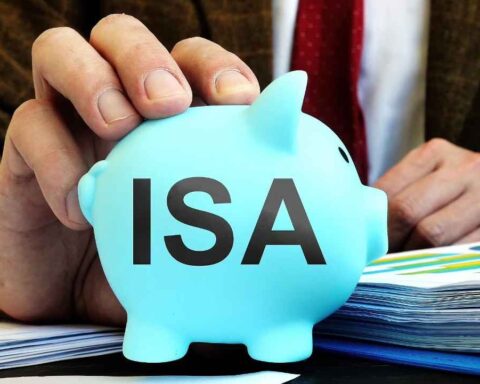As the Muslim population globally continues to increase, so does the craving for investing, adding, and working within Sharia-compliant investments. The United Kingdom is the Centre of Sharia-compliant products and Islamic finance for western countries.
Halal investing requires the investor to know about investment products and their operations, and then it is possible to assess if the investment is in line with Islamic finance principles.
Retail investors who wish their investments to be Sharia compliant face various matters and are generally inexperienced about getting a list of stocks complying with Islamic principles.
Investing in equities is considered a Sharia-compliant activity by Islamic Scholars. Sharia investment strategies do not allow Muslim and Islamic investors to trade in shares and stocks of companies that are involved in such a business and earn more than 5% of their income from prohibited businesses activities like selling Alcohol, tobacco, pork products, pornography, gambling, interest-based financial activities, media and entertainment which is opposed to Islamic principles as well as trading in gold and silver.
What is Halal?
Halal is an Arabic word that means allowable or permissible in English. Historically, the focus on Halal and Haram has been most prominent in food. Still, the concept of Halal and Haram can also apply to all things beyond food, including lifestyle, investments, finance, and business.
Halal investing is a religious form of investing involving Islamic law and Sharia. A lot of criteria apply to socially responsible investing.
Why is Halal a must for Muslims?
Halal represents an Islamic way encompassing behaviour, speech, diet, conduct, dress, and manner. Is consuming Halal is an order Allah and is an important part of the Islamic faith. Allah has repeatedly emphasized the ingesting of Halal in his book.
In this world, by taking these products, he deprives himself of any of his good deeds, and Duasis accepted by his creator and thinks that he may suffer great loss or refusal from being admitted to paradise.
How to choose Halal stocks in the UK?
When undertaking due persistence before Halal stocks investment in the UK, you should look for the following three types of investment opportunities:
- Companies with Halal practices: these are the companies that operate completely halal way, and these are known as clean companies.
These companies follow the Sharia finance rule and have a transparent halal audit trial.
- Companies with haram practices: These companies operate in Islam prohibited industries such as gambling and Alcohol.
- Mixed companies: These companies may follow halal activities as well as they may practice haram activities.
If you are searching for a halal investment, option 1 is the best. Companies that are mixed with halal and haram must be avoided.
As one of the fastest-rising finance sectors, Islamic finance has opened various opportunities for halal investment. In the United Kingdom, many banks are offering especially investing products, accounts, and loans as well.

Halal investing for beginners:
Halal investment entails the investor knowing all about investment procedures and their working. These are fundamental to measuring if the investment is in line with the Islamic investment principles as the main principle of halal investment based on those principles.
Let’s deep go through into these:
Asset-based investment:
In Islam, money has no intrinsic value; it is just a medium of exchange. The use of money and the making of money is prohibited in Islam. Money should not be the topic of investment.
Therefore, investments that are based-on money are not permissible in Islam. This prohibition is related to ‘Riba’.
Paying and charging Interest: (RIBA)
Riba means excess or increase, implying any excess compensation without due consideration. It refers to interest-bearing loans or transactions. Investments and interest payments that include an interesting element are strictly prohibited in Islam.
Risk of uncertainty (Free of Gharar):
Sharia rules do not allow participating contracts where excessive risks or uncertainty lie. Investing in any short-selling uncertainty contracts is prohibited following Islamic finance principles.
Investing that sells prohibited goods/services:
In Islam, certain matters are unlawful, as they are clearly stated in Quran and Sunnah. Anything that is considered to be harmful either to the body, mind, society, or soul is prohibited.
The prohibition includes Alcohol, stealing, killing, sex outside of marriage, oppressing, and other non-permissible activities.
So any investment that falls under that unlawful category must be avoided by Muslim investors.
Speculation:
Sharia law forbids speculation or gambling. So, any form of investing that includes a contract where the owner needs to depend on the contract that’s future is uncertain this is deemed unjustified.
Best Halal stocks to Invest in the UK:
There are a range of assets, markets, and sectors to choose from when considering investments in the UK. Some investors avoid high debt stocks involved in gambling, tobacco, and Alcohol to remain Sharia-compliant.
Here is a list of what could be a Halal investment in the UK:
- Adobe
- Microsoft
- Intel
- ETSY
- ExOne Co
- Up work
- AMD
- Drop Box
- Unilever
- Tesla
- Shopify
- Johnson & Johnson
Apps that you should use for Halal investing:
There are so many websites, and more of them also have mobile apps. As a beginner, it is advisable that you would be safer investing in long-term (3+year) in a well-established company with a large market cap.
There is a great need for faith-based investment Apps that suits people’s halal principles, especially for the growing number of Muslims.
Some Halal investing Apps to choose investments that fit Muslim values are:
- M1 Finance
- Zoya
- Robin hood
- Fundrise
- Aghaz
- Wahed
- Amana Funds
- Wealthsimple
FAQ:
Is investing in stocks halal?
Ans: The investment is also acceptable as long as the stock is halal. Whereas companies that deal in prohibited trades or are considered very risky belong to the haram. You do need to be sure that the industry is not dealing in an un-Islamic manner.
What is the best halal investment?
Ans: Some halal investments according to the Islamic faith are:
- Stocks
- Funds
- Real Estate
- Gold and other material
- Sukuks
- Cryptocurrency
Is Trading haram or halal?
Ans: Buying, holding, and selling lawful stocks are permissible in Islam. The trade that doesn’t deal with a product/service harmful to society is considered halal trade. In contrast, the trade violating the Islamic finance principles is considered haram trading.
Is futures trading halal or haram in Islam?
Ans: On future trading, you pay an interest charge, and dealing with Interest is haram. Future trading means betting on future prices. If your bet will right, you will win and earn money. If it goes wrong, you will lose. So it is a sort of gambling which is forbidden in Islam. So, future trading is haram.
Conclusion:
Islamic finance endorses the concept of ethical finance management and investment. The use of Interest, unethical industry, or risky investments is discouraged in Islam. Halal investing is a rising financial niche for Muslims and non-Muslims as well.
Investing in products/services that are Sharia compliant requires some information gathering and due carefulness.
As the Islamic finance sector is increasing annually, a faith-based approach to capitalizing and trading is becoming more mainstream.
Coupled with the economic growth of many Islamic countries, it is probable that halal investment products/services will become more accessible within the next few years.









